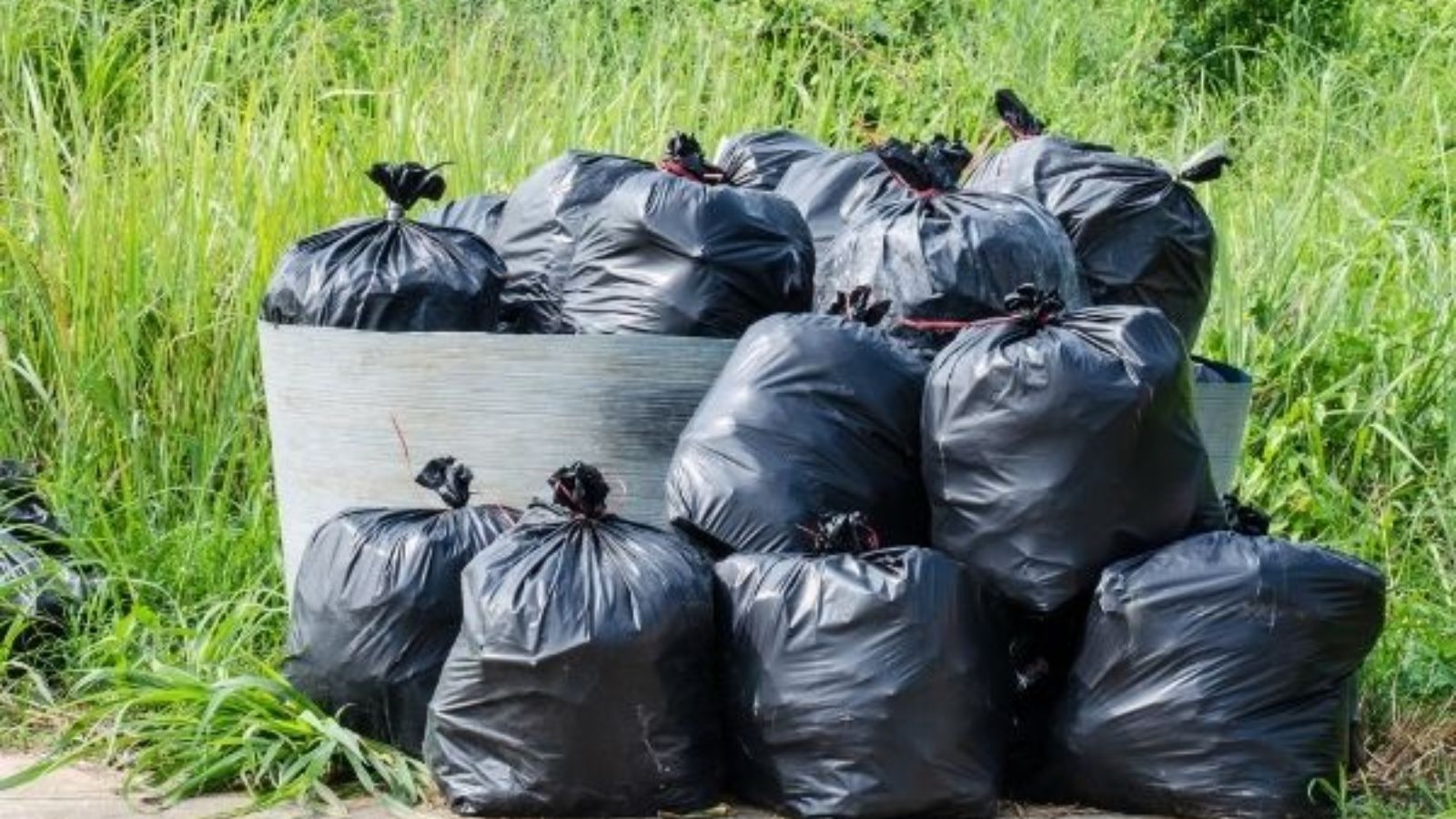Introduction
Composting is an eco-friendly way to recycle organic waste into nutrient-rich soil for your garden. However, not everyone has the space or equipment for a traditional compost pile or bin. Fortunately, composting in a black garbage bag is an easy and efficient method that requires minimal effort while still producing high-quality compost. This technique is perfect for small-space gardeners, apartment dwellers, or anyone looking for a low-maintenance composting solution. In this guide, we’ll walk you through the step-by-step process of making compost in a black garbage bag.
Why Use a Black Garbage Bag for Composting?
Using a black garbage bag for composting is a practical and efficient way to break down organic waste. Here are a few benefits of this method:
- Space-Saving: Ideal for small gardens, balconies, or urban settings where traditional compost bins are not feasible.
- Fast Decomposition: The black color absorbs heat from the sun, speeding up the composting process.
- Odor Control: Sealing the bag minimizes unpleasant smells compared to open compost bins.
- Easy Maintenance: No need for frequent turning or complicated layering techniques.
- Affordable and Accessible: No special equipment is needed – just a garbage bag and organic waste.
Step-by-Step Guide to Making Compost in a Black Garbage Bag
1. Gather Your Materials
To start composting, you will need:
- A large, sturdy black garbage bag (preferably biodegradable or thick plastic to prevent tearing)
- Organic waste (kitchen scraps, yard waste, coffee grounds, eggshells, etc.)
- Brown materials (dry leaves, shredded newspaper, cardboard, etc.)
- A small amount of water
- A sunny spot to place the bag
2. Prepare the Bag
Before adding waste, poke a few small holes in the garbage bag for air circulation. This helps aerobic decomposition, which speeds up the breakdown of materials and prevents a foul smell.
3. Add Organic Waste in Layers
A successful compost pile requires a good balance of green and brown materials:
- Green Materials (Nitrogen-Rich): Vegetable scraps, fruit peels, coffee grounds, fresh grass clippings, and plant trimmings.
- Brown Materials (Carbon-Rich): Dry leaves, shredded paper, cardboard, wood chips, and straw.
Layer these materials alternately, ensuring an even distribution. The balance should be about 2 parts brown materials to 1 part green materials.
4. Add Moisture
Compost needs moisture to decompose properly. Add a little water to the bag to keep the contents damp but not soggy. If the mixture is too dry, decomposition will slow down. If too wet, it may start to smell bad. A moisture level similar to a wrung-out sponge is ideal.
5. Seal and Shake the Bag
Tie the garbage bag loosely to allow some air circulation while keeping the contents contained. Give the bag a gentle shake to mix the materials. This helps distribute moisture and promotes faster breakdown.
6. Store in a Sunny Spot
Place the garbage bag in a warm, sunny location. The black plastic will absorb heat, which accelerates decomposition. If possible, place the bag on a hard surface like a patio or driveway to retain heat even better.
7. Turn and Check the Contents
Every couple of weeks, open the bag, mix the contents, and check the moisture level. If it’s too dry, add a little water. If it’s too wet, add more dry materials like shredded paper or cardboard.
8. Wait for Decomposition
The composting process typically takes 6 to 8 weeks, depending on temperature and moisture conditions. You’ll know your compost is ready when the contents turn dark, crumbly, and have an earthy smell.
9. Use Your Compost
Once your compost is fully broken down, you can use it in your garden. Spread it around your plants, mix it into potting soil, or use it as a top dressing for your lawn to enrich the soil and promote healthy plant growth.
Common Mistakes to Avoid
- Overloading with Greens: Too much green material can cause a bad odor and slow decomposition. Always balance with enough brown materials.
- Not Enough Air Circulation: Lack of air can lead to anaerobic decomposition, resulting in a smelly mess. Poking holes in the bag and shaking it regularly helps prevent this.
- Excess Moisture: A compost pile that’s too wet can develop mold and slow down the composting process. If this happens, add more dry materials.
- Ignoring Temperature: If the bag isn’t in a warm spot, decomposition will take longer. Relocate the bag to a sunnier area if necessary.
FAQs About Black Garbage Bag Composting
Q: Can I compost meat, dairy, or oily foods in the bag? A: No, avoid composting meat, dairy, and oily foods as they can attract pests and produce unpleasant odors.
Q: What do I do if my compost smells bad? A: Bad odors are usually caused by too much green material or excess moisture. Add more brown materials and aerate the compost to fix the issue.
Q: Can I keep the compost bag indoors? A: It’s best to keep it outdoors due to potential odors and moisture buildup.
Q: How do I speed up the composting process? A: Shaking the bag regularly, maintaining proper moisture levels, and keeping it in a sunny spot will speed up decomposition.
Conclusion
Making compost in a black garbage bag is a simple, cost-effective, and efficient way to recycle organic waste into nutrient-rich soil. This method is perfect for gardeners with limited space or those looking for an easy, low-maintenance composting solution. By following the steps outlined in this guide, you can create healthy compost in just a few weeks and improve the quality of your soil while reducing waste.
Give this method a try and start composting today! Have you tried composting in a garbage bag before? Share your experiences in the comments! 🌱♻️ #OrganicGardening #CompostDIY #GardeningHacks #SustainableLiving #GreenThumb

